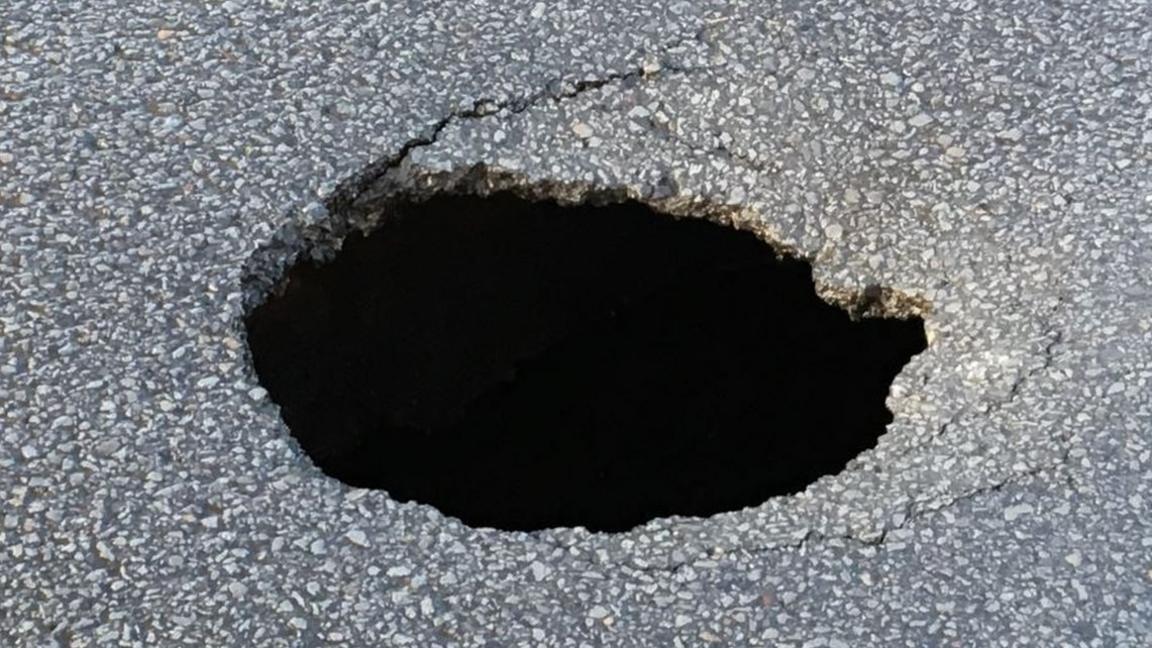'Stop sinkholes happening' in coalmining areas call
- Published
- comments
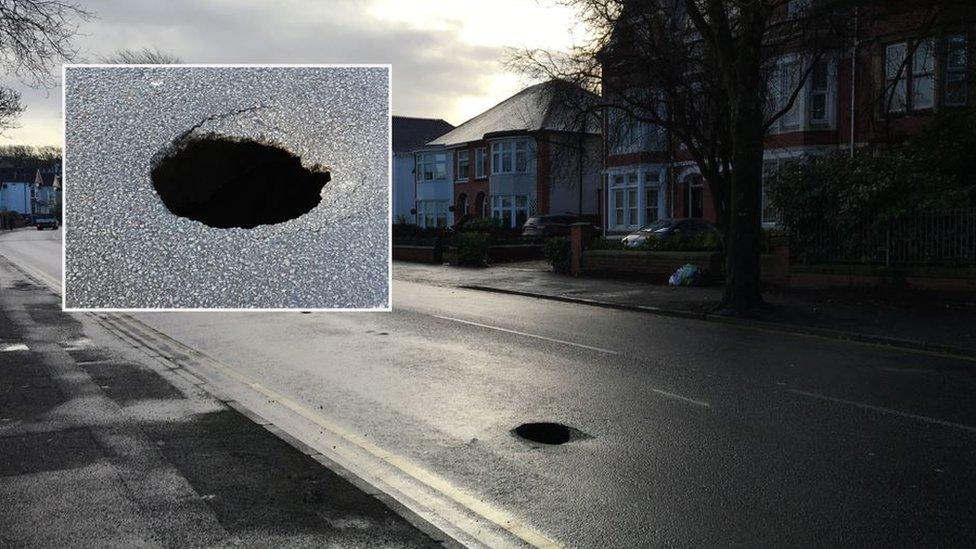
A sinkhole on Cimla Road, Neath
Sinkholes in former coalmining areas can be predicted and more must be done to stop them, an expert has said.
Mine risk specialist Tom Backhouse spoke out after one appeared on a Cimla street - the third in the Neath area.
Mr Backhouse said Neath Port Talbot council and the Coal Authority should do more - such as going into sinkholes to investigate where others may appear.
A local authority spokesman said many were not sink holes but defects caused by leaking drains and water systems.
In January 2016, Cimla Road was cordoned off because of a sinkhole discovery, with it only 1.5ft (0.5m) wide on the surface but collapsing below to 20ft (6m) deep.
Residents in Neath get sinking feeling
Geologist Mr Backhouse said where there were colliery spoil and mine shafts there was inevitably going to be "collapse and ground instability".
While he said it was perceived nothing could be done, he added: "Sinkholes are seen as being pretty scary and almost unpredictable, but that has to change because they aren't actually unpredictable, particularly when they're caused by mining."
Mr Backhouse said roads were the most common place for them to happen because there are old drains underneath that can leak and cause the issues.
When sinkholes appear, he called on the council and Welsh Water not to be in a rush to fill them in but look into the problem.
"If they aren't filled in quickly and we can investigate it, we can go under the ground and actually see what's there and make sure that if it's a bit further along it won't happen again," he added.
However, a council spokesman said: "Neath's industrial legacy is similar to that of south Wales as a whole and the authority has no evidence base to indicate that what is being suggested is either proportionate or appropriate in terms of prioritising its limited resources."
He added many highway issues branded as sinkholes were "voids and deformation caused by leaking drainage and water systems".
"Such systems and voids are repaired accordingly with the aim of restoring normal access at the earliest opportunity in order to minimise disruption to road users," he said.
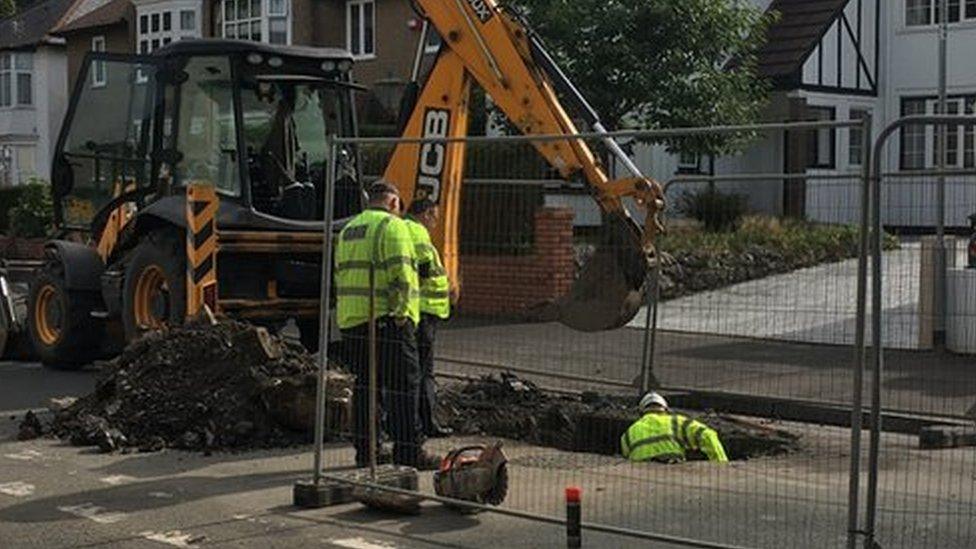
The sinkhole in Cimla was the third to open up in the area in recent years
A spokesman for Welsh Water said there was no evidence to suggest its network contributed to any of the recent cases in Neath.
"We use cutting edge technologies to constantly monitor our network for leakage," he added.
"In the event of a burst water main, we will always look to put things right as soon as possible to ensure our work has as little impact on our customers as possible."
A few years ago, Roy Jenkins from Cimla was told there was a mineshaft 300m (984ft) deep under his garden that had been there for more than 100 years.
In 2015, the Coal Authority dug it up and filled it in with tonnes of concrete.
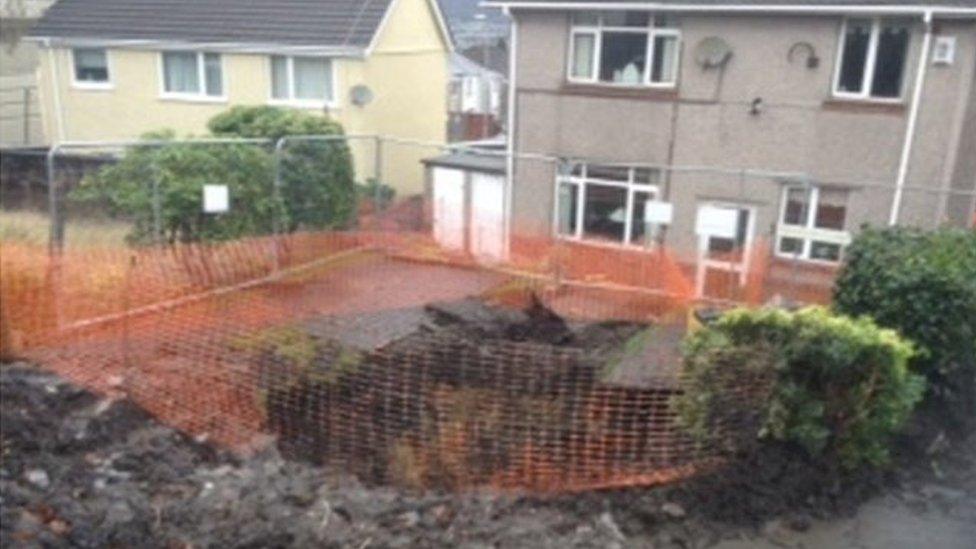
Roy Jenkins' garden was dug up as the Coal Authority investigated an underground mine shaft
Mr Jenkins said he was concerned the discovery would affect the value of his house.
Local AM Jeremy Miles has requested a meeting with the Coal Authority so he can understand the situation in the area more fully.
"What I will say is that when I have been to see the sinkhole, the authorities have reacted very quickly," he said.
"The council has been out, Welsh Water have been there and the Coal Authority, so there's been a fast reaction to the situation when it has arisen."
The Coal Authority has been managing Britain's former mining legacy for 20 years.
A spokesman said terminology is often confused - suggesting a sinkhole is naturally occurring, caused by changes to rock formations underground.
When there is movement associated with underground mines, these are generally less than 30m (98ft) in depth and are called crown holes, occurring when the roof of old workings collapse.
The Coal Authority's Darren Bryant said: "Our work in and around Neath is extensive and includes undertaking proactive mine entry inspections, tip management, responding to reported hazards, treating mine water and providing responses to planning applications as a statutory consultee."
- Published6 September 2017
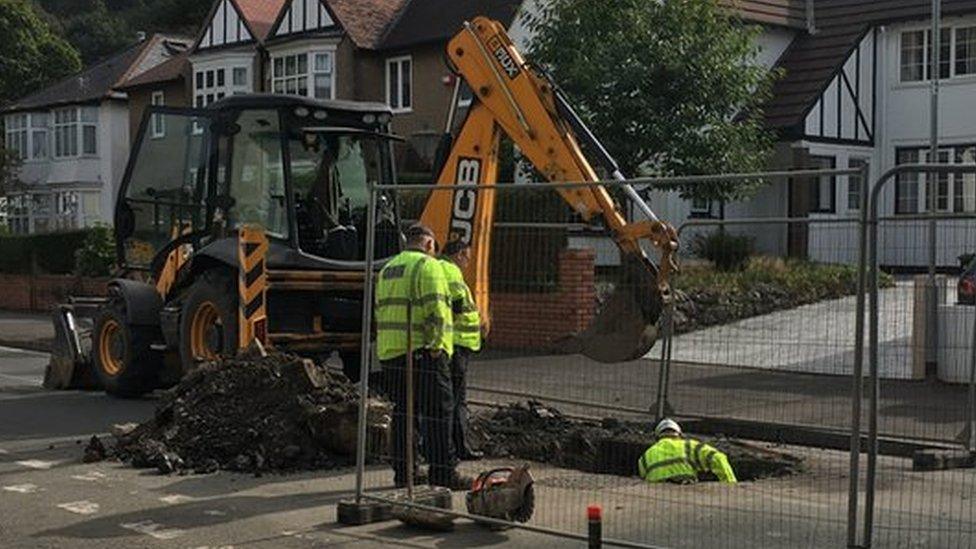
- Published7 January 2016
